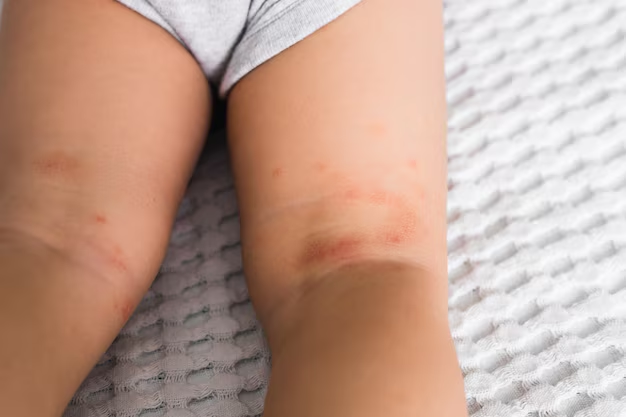Can Kids Get Shingles? Understanding the Risks and Facts for Parents
When we think about shingles, images of older adults often come to mind. It's a common misconception that shingles only affects older people. But, as every parent knows, the world of childhood ailments is vast and sometimes, surprising. Can children get shingles, and if so, what should parents be aware of? The answer isn't as straightforward as you might think. Let's explore this intriguing question and uncover key insights every caregiver should know.
What is Shingles?
Shingles, also known as herpes zoster, is an illness caused by the varicella-zoster virus, the same virus responsible for chickenpox. After a person recovers from chickenpox, this virus doesn’t leave the body. Instead, it lies dormant in the nervous system, potentially reactivating years later as shingles. This reactivation often manifests as a painful rash, typically on one side of the body or face.
The Connection Between Chickenpox and Shingles
To fully understand shingles, it's crucial to grasp the connection between chickenpox and shingles:
- Initial Infection: Children and adults contract chickenpox, presenting as red, itchy spots that become blisters.
- Dormancy: Once chickenpox resolves, the varicella-zoster virus retreats to nerve tissues near the spinal cord and brain.
- Reactivation: For reasons not entirely understood, the virus can reactivate, causing shingles.
Signs and Symptoms of Shingles
Recognizing shingles is essential for early intervention. Key symptoms include:
- Pain and Tingling: Initial signs often involve discomfort—burning, tingling, or itching in a specific area.
- Rash Development: After a few days, a red rash appears. It typically progresses to fluid-filled blisters.
- Other Symptoms: Fever, chills, headache, and fatigue might accompany the rash.
Can Kids Get Shingles?
The straightforward answer is yes, although it's uncommon. Shingles in children is typically milder than in adults. Here’s what parents should know:
At-Risk Groups
- Previous Chickenpox Infection: Children who have had chickenpox are at risk since the virus remains in their body.
- Weakened Immune Systems: Kids with compromised immunity due to illnesses or medications are more susceptible.
Causes of Shingles in Children
While shingles is rare in children, certain factors can contribute:
- Stress and Illness: Just like in adults, stress and concurrent illnesses might trigger the virus.
- Immune System Suppression: Conditions or treatments that suppress the immune system can activate the virus.
Understanding the Impact of Shingles on Children
Fortunately, shingles in kids tends to be less severe. However, it’s still vital to recognize potential complications and provide appropriate care.
Potential Complications
- Postherpetic Neuralgia (PHN): Although rare in children, PHN causes persistent nerve pain after the rash resolves.
- Secondary Infections: Scratching can lead to bacterial infections in the blistered areas.
Emotional and Social Challenges
- School Absences: A shingles diagnosis often means staying home from school, leading to potential academic disruptions.
- Peer Interactions: Visible rashes might affect children’s social interactions, causing embarrassment or curiosity among peers.
How to Respond if Your Child Has Shingles
Prompt action can alleviate symptoms and prevent complications. Here’s what caregivers should focus on:
Monitoring Symptoms
- Consult a Healthcare Provider: If shingles is suspected, seeking medical advice quickly is crucial for diagnosis and management.
- Symptom Tracking: Observing changes or intensifying symptoms aids in effective communication with healthcare providers.
Comfort Measures
- Pain Management: Discussing appropriate pain-relief options with a healthcare professional ensures the child's comfort.
- Skin Care Practices: Keeping the rash clean and dry, and using recommended soothing lotions can help ease discomfort.
Prevention: Can Shingles Be Prevented in Children?
While shingles in children is hard to predict, there are measures to lessen the risk:
Vaccination Insights
- Chickenpox Vaccine: The varicella vaccine, given in childhood, reduces chickenpox cases and severity, subsequently lowering shingles risk later in life.
- Shingles Vaccine: Currently, shingles vaccines are recommended primarily for older adults. However, future research might change these guidelines.
Building Awareness and Proactive Health Strategies
The world of children's health is continually evolving, and staying informed is crucial.
Educating Yourself and Others
- Stay Informed: Understanding childhood illnesses, like shingles, can empower proactive health decisions.
- Community Sharing: Discussing health concerns and insights with other parents and educators fosters a supportive environment.
Encouraging General Wellness
- Healthy Lifestyle Habits: Encourage a balanced diet, regular exercise, and adequate sleep to bolster the immune system.
- Stress Management for Kids: Promoting relaxation and stress-reduction activities can be beneficial in overall health and potentially reduce shingles risk.
Caring for children involves navigating a landscape of potential ailments, some unexpected, like shingles. While uncommon, understanding the possibility, symptoms, and impact of shingles in children equips parents with the knowledge to act swiftly. As medical insights evolve, staying informed and fostering a culture of health awareness remains a cornerstone of supporting our children's well-being.
Key Takeaways on Shingles in Children
- Kids Can Get Shingles: Uncommon, but possible, especially after chickenpox.
- Common Symptoms: Pain, rash, and in rare cases, long-term nerve pain.
- Prevention: Chickenpox vaccination reduces the risk.
- Seek Medical Advice: Prompt attention can prevent complications.
- Supportive Care: Focus on comfort and skin care during an outbreak.
🌀 Stay Informed: Understanding health risks empowers better care decisions.
🧒 Promote Wellness: Balanced nutrition and stress management support overall health.
📚 Share Knowledge: Discussing health insights builds community support.

